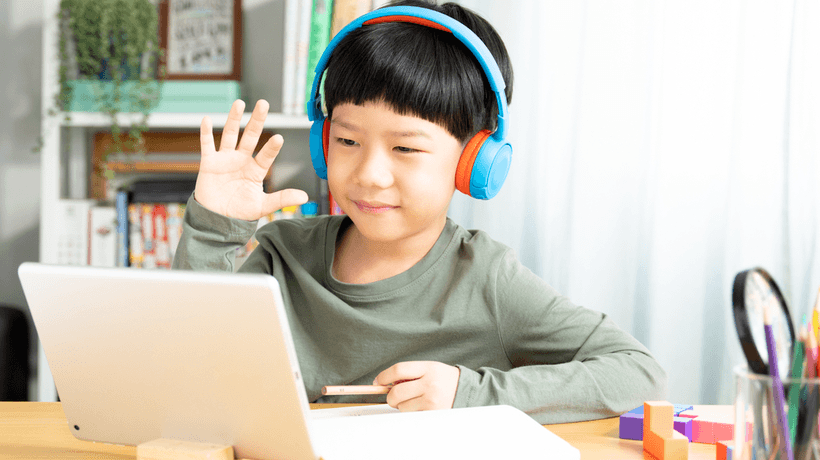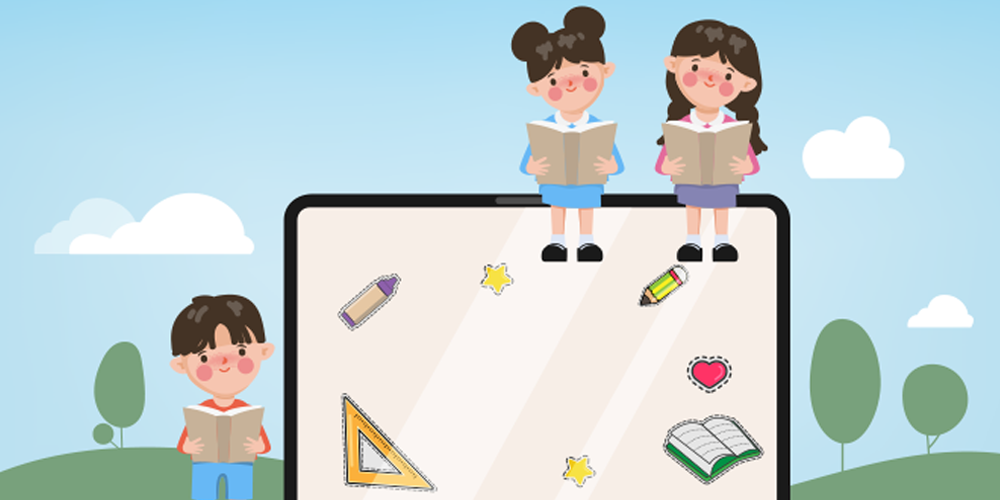The Benefits of E-Learning for Youngsters: Enhancing Understanding and Abilities
E-learning has emerged as a transformative tool in modern-day education, particularly for children, by providing a tailored and engaging means to improve their expertise and skill sets. The fundamental flexibility of e-learning allows trainees to proceed at their very own rate, fitting varied discovering styles and schedules.

Personalized Understanding Experience
Among the considerable benefits of e-learning for youngsters is the capacity to supply a tailored understanding experience. This strategy customizes academic content to fulfill the private needs, toughness, and rate of each student. Advanced data and formulas analytics are utilized to examine a kid's performance and finding out style, thereby tailoring lessons to enhance understanding and retention.

In addition, individualized understanding fosters a sense of possession and motivation in trainees. When youngsters see that lessons are directly pertinent to their capabilities and passions, they are most likely to involve deeply with the product. This targeted technique not just boosts academic performance however additionally constructs self-confidence and fosters a lifelong love for knowing, making e-learning a vital device in modern-day education and learning.
Interactive and Involving Web Content
Interactive and engaging content is a foundation of efficient e-learning for youngsters, changing easy consumption of info into an active educational experience. This kind of content utilizes a variety of multimedia aspects such as computer animations, video clips, and interactive simulations to captivate young learners' focus. These tools not only make finding out satisfying but likewise boost comprehension by enabling kids to picture complicated ideas in a more digestible fashion.
In addition, gamification strategies like tests, problems, and badges add an aspect of fun and competition, motivating pupils to engage constantly with the material. These interactive functions urge engagement and promote a much deeper understanding, as trainees are not simply viewers however active individuals in their discovering journey. This interaction is vital for preserving info and developing essential believing skills.
In addition, interactive content can be customized to various understanding designs, suiting visual, auditory, and kinesthetic students. This vibrant technique to finding out proactively involves students, making education a lot more pleasurable and efficient.
Flexibility and Convenience
E-learning for children uses unmatched versatility and ease, making education obtainable regardless of temporal or geographical restraints. This mode of finding out allows trainees to accessibility educational products from anywhere with a web connection, getting rid of the demand for physical presence in a standard class. Such versatility is especially helpful for households who take a trip regularly or stay in remote areas with restricted instructional resources.
The comfort of e-learning extends past physical area. It likewise permits customized knowing routines, making it possible for students to discover at their own speed and sometimes that fit their individual routines. This can be specifically useful for children associated with after-school activities or those with varying levels of discovering rate. They can take another look at hard concepts, accelerate through familiar subjects, and manage their study time efficiently without being bound by rigid timetables.

Improved Critical Assuming
A vital benefit of e-learning for youngsters is its prospective to considerably improve vital thinking abilities. Unlike typical class settings, e-learning platforms look what i found commonly include interactive components such as quizzes, problem-solving tasks, and simulations that call for trainees to actively engage with the material (Education and study for children and kids). These interactive elements oblige students to assess info, weigh evidence, and make educated decisions, consequently promoting vital reasoning
Additionally, e-learning environments often supply tailored knowing courses. This personalization ensures that pupils run into difficulties customized to their private ability degrees, promoting much deeper cognitive engagement. Flexible understanding systems can determine areas where a pupil may supply and struggle targeted workouts to deal with these voids, motivating logical thought and representation.
Furthermore, the substantial selection of resources readily available online allows trainees to check out subjects from several perspectives. Access to diverse sources of info permits them to compare and contrast different viewpoints, enhancing their capability to seriously evaluate material. This direct exposure grows an inquisitive state of mind, motivating trainees to wonder about presumptions and develop well-reasoned debates.
Motivating Collaboration and Creative Thinking
Building on the improvement of critical thinking abilities, e-learning for children also plays a considerable role in promoting cooperation and creative thinking. Digital platforms give various tools that make it possible for students to interact on tasks, share concepts, and jointly address problems. Online classrooms and collaborative software, such as Google Classroom and Microsoft Teams, facilitate real-time click over here now interactions and joint projects, permitting youngsters to create team effort skills necessary for future academic and professional settings.
E-learning settings stimulate creative thinking by using a myriad of sources and interactive material. Virtual laboratories, innovative software application applications, and multimedia devices allow kids to experiment, layout, and produce in ways typical classrooms may not. Programs like Damage and Tinkercad equip students to construct their very own video games and 3D models, specifically, nurturing their imaginative capacities.
Moreover, the asynchronous nature of numerous e-learning systems supplies children the versatility to explore Get the facts subjects at their own rate, cultivating independent thinking and development. This self-guided exploration is critical for developing an imaginative attitude. In summary, e-learning not just boosts academic understanding yet also cultivates crucial abilities such as collaboration and imagination, hence preparing youngsters for a dynamic and interconnected world.
Conclusion
E-learning significantly boosts the academic experience for children by offering individualized discovering tailored to private toughness and interests. Interactive and appealing material, including multimedia and gamification, promotes energetic participation and satisfaction. The versatility of e-learning permits trainees to learn at their very own rate, promoting vital reasoning, imagination, and crucial collaboration skills. Inevitably, e-learning cultivates a love for discovering and furnishes youngsters with the necessary skills for future success.
The inherent flexibility of e-learning allows pupils to proceed at their own pace, accommodating varied understanding designs and routines. Unlike conventional classroom settings, e-learning systems commonly include interactive components such as quizzes, problem-solving jobs, and simulations that require trainees to actively engage with the material.E-learning considerably improves the academic experience for kids by supplying personalized learning tailored to specific strengths and interests. The versatility of e-learning allows pupils to learn at their own pace, promoting important thinking, creative thinking, and vital cooperation skills. Ultimately, e-learning cultivates a love for discovering and equips kids with the required abilities for future success.